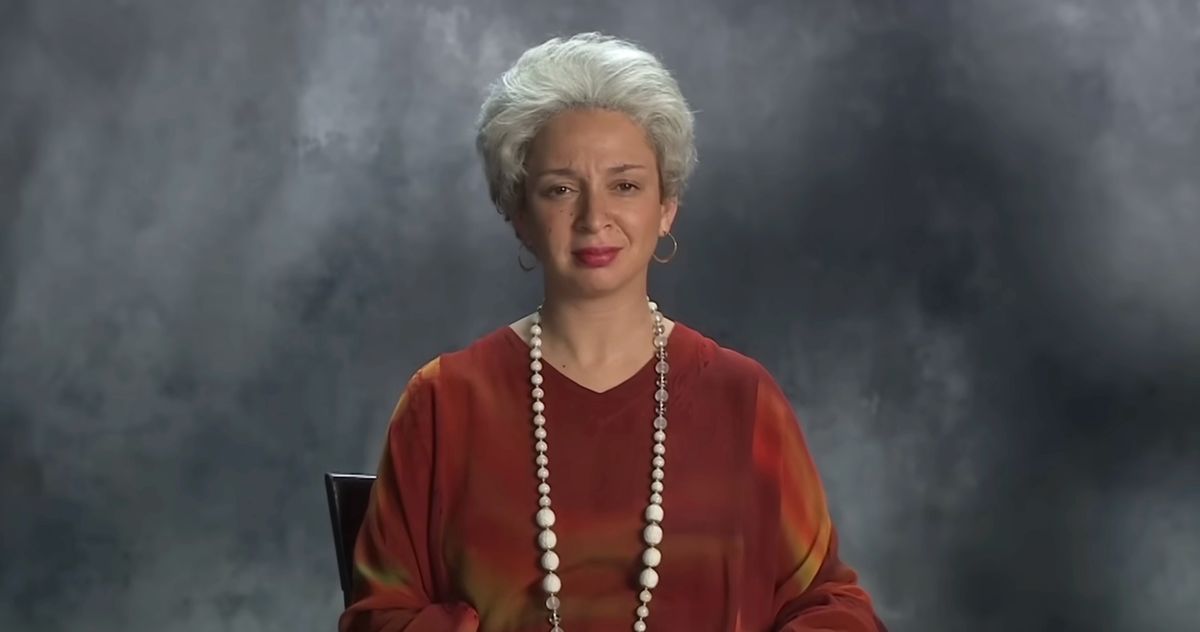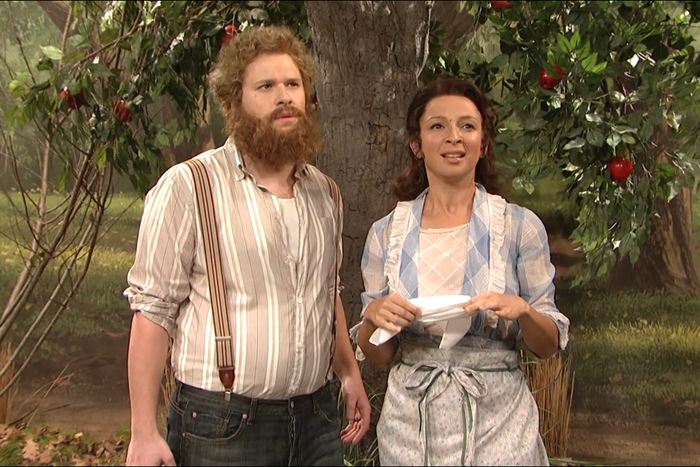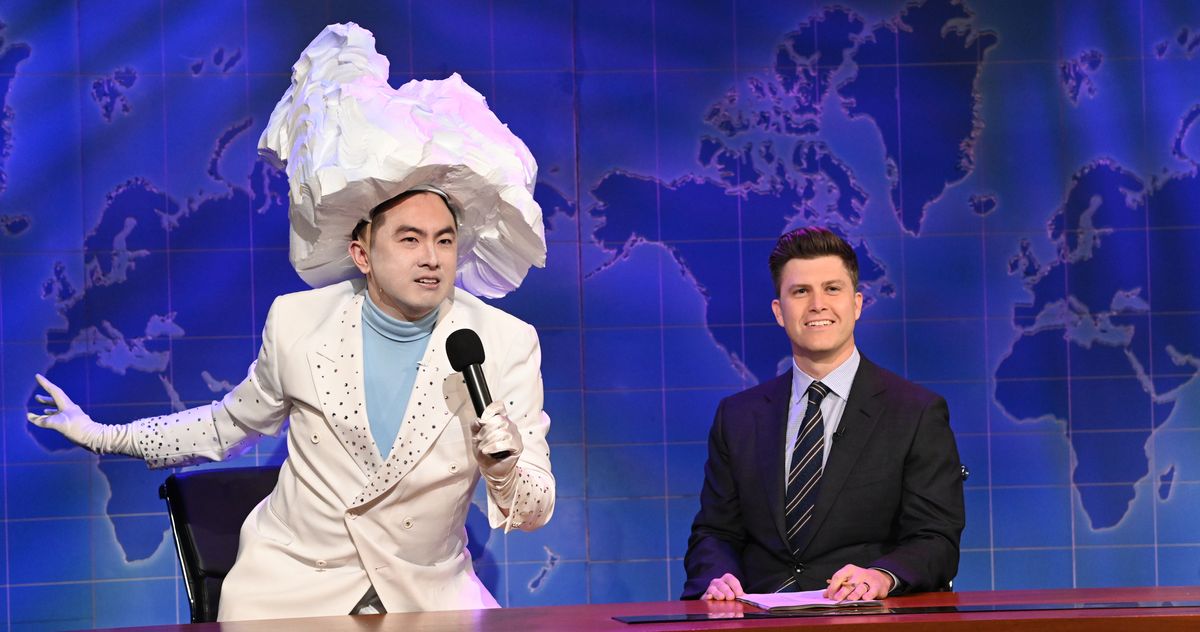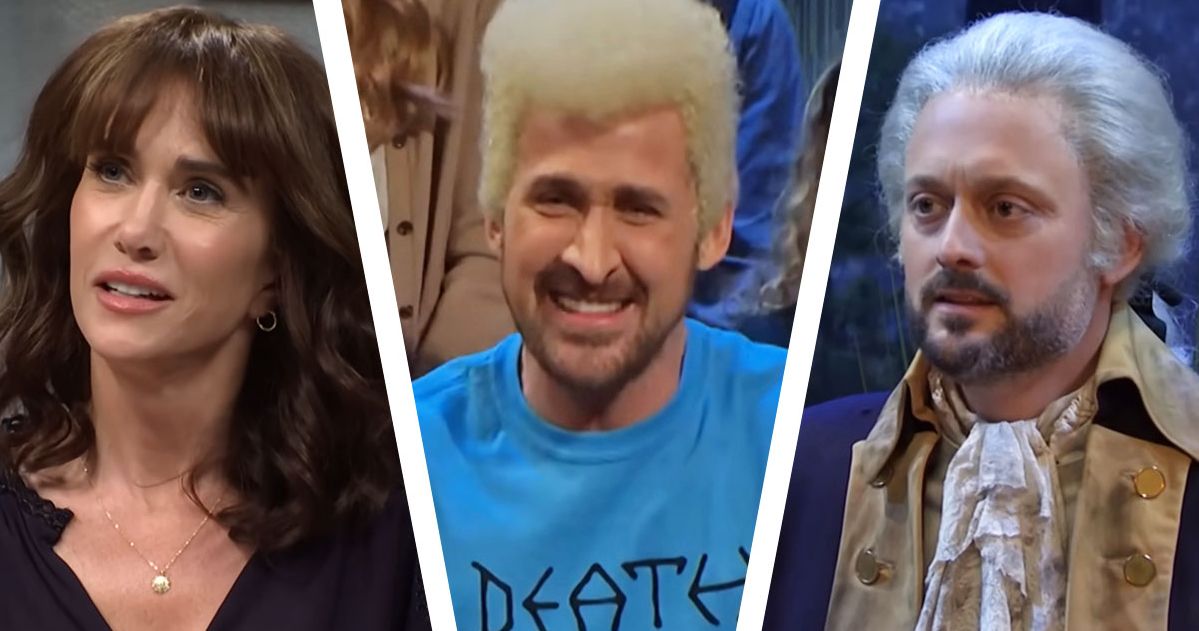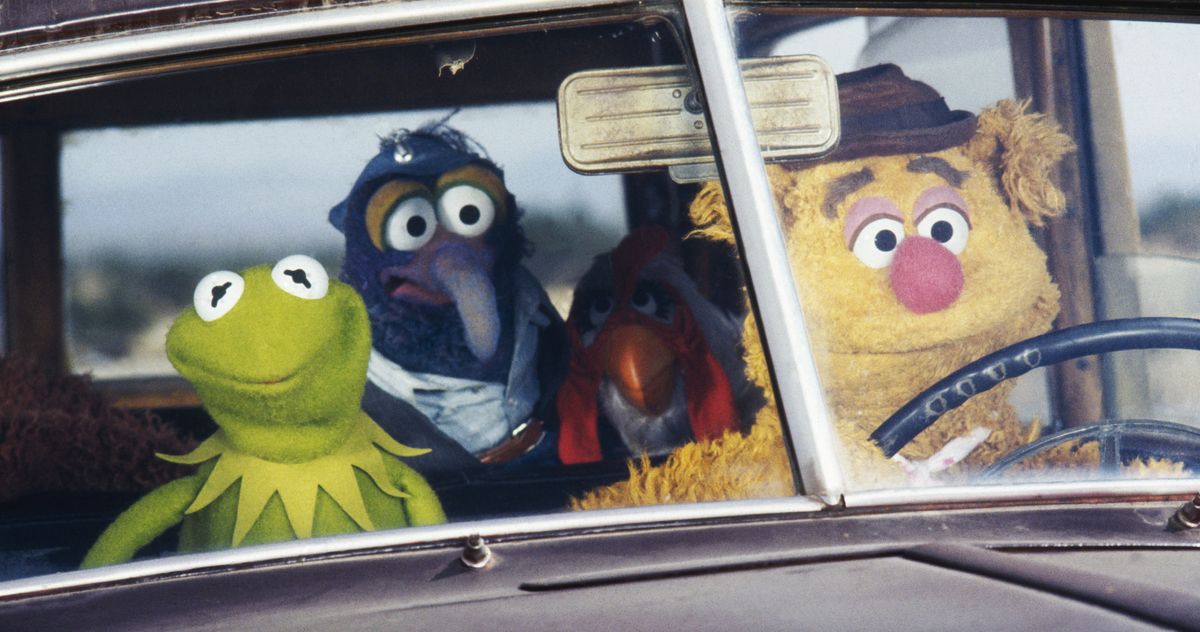Some Saturday Night Live cast members eclipse their time on the show either by subsequent roles that lend them even greater visibility (see Eddie Murphy or Bill Murray) or by appearing on the show so briefly that it’s not a major part of their CV (see Ben Stiller or Jenny Slate). Others, especially in the 21st century, have made SNL a focal point of their prime comedy years. Maya Rudolph was part of a wave of 2000s-era cast members who normalized the idea that you could stick around Saturday Night Live for longer than four or five years before bolting for starring roles in movies — that doing SNL itself could be a sort of calling. That’s not to say Rudolph hasn’t done great work since leaving the show in 2008; in addition to broad comedies like Bridesmaids, MacGruber, and Sisters, she’s wonderful in Away We Go and A Prairie Home Companion, and she’s been a fixture on TV with shows like Loot, whose second season occasions her latest SNL hosting gig. But the reason she comes back to host and guest star so frequently is that no matter how the cast changes over, she never feels out of step. Her versatility in performing outsize character, smaller-scale portraiture, and dexterous musical numbers make her ideal for a comedy-variety program. Here, selected from her eight years as an SNL regular as well as two hosting gigs and a ton of cameos, are Maya Rudolph’s best sketches.
It’s the kind of thing that seems unthinkable in its casualness today: For years, if SNL wanted to do a sketch about Oprah Winfrey, one of the biggest figures in media, they would typically put a male cast member in drag. Rudolph (the daughter of the late singer Minnie Riperton and producer Richard Rudolph) was only the fourth Black woman on the show — and only the second to get more than a single season. Obviously this was historic (and grievously belated) for reasons having nothing to do with doing silly make-’em-ups about Oprah Winfrey. But, true to Rudolph’s talent, her Oprah sketches were very funny. Everyone and their mom can now do a rough imitation of Winfrey’s most boisterous moments; the most memorable of Rudolph’s Oprah sketches has the simple but extremely effective counterpoint of the women in her audience (led by Tina Fey, Amy Poehler, and Rachel Dratch) unable to comport themselves with Oprah’s same level of control. It’s the perfect fusion of over-the-top Winfrey-isms and a nod to Oprah’s almost god-like self-possession.
It makes sense that Rudolph eventually became a go-to Beyoncé impressionist, because one of her first characters on this show essentially already parodied the singer during her Destiny’s Child days. Rudolph and Ana Gasteyer play two-thirds of a pop trio (the ever-rotating, often-absent third member is one of the sketch’s running jokes), and this installment is a bit of a deluxe presentation, including both a fake music video (with Pierce Brosnan!) and the real Destiny’s Child playing the trio’s first three ex-members.
Purged from the internet, presumably because middle-school combo Jazz Times Ten covers an Average White Band song in their theme music, this recurring sketch became a near-unavoidable and deeply endearing early showcase for both Rudolph and Rachel Dratch, playing middle-school kids hosting a morning talk show. It’s all there in the first installment: Rudolph’s Megan (pronounced Maayygin) keeps things moving with her awkwardly toned positivity while barely containing her horniness for heartthrob Randy Goldman (Jimmy Fallon), as Sheldon (Dratch in perfect boy drag, playing the original nerdy guy called Sheldon, as far as I’m concerned) alludes to his various personal problems. It’s a deceptively commanding performance from Rudolph, using her voice and body language to sell the character and the jokes in perfect concert.
To be honest, I’ve seen way more of Maya Rudolph playing Donatella Versace than I have of Versace herself — and I’d guess that’s true for plenty of SNL viewers in the 2000s. Given that Rudolph characterized the Italian fashion designer as sort of a belligerent, drunken vampire, her portrayal was weirdly, hilariously malleable, encompassing a fake talk show, fake variety specials, and fake ads, like this one for Versace Pockets.
A recurring character with the one-for-me weird vibes associated with cast members like the Wills Ferrell and Forte, Glenda Goodwin utilizes what is perhaps Maya’s finest adenoidal pitch to list the bizarre circumstances for personal-injury cases she will happily accept without questions. Goodwin would go on to pop up occasionally over the next few years, but her triumphant cries of “case pending!” encapsulate what’s so singularly and confidently cracked about this character.
Okay, ignore the fact that Venus and Serena Williams are played by Tracy Morgan and Dean Edwards in drag — or maybe try to savor the rare occasion where SNL’s clumsily frequent placing of its Black male performers in dresses is actually (somewhat) balanced out by a woman of color in male drag. Or, just focus on the delightful oddity of a restrained Maya Rudolph playing the ragtime king, who has mastered time travel seemingly for the sole purpose of running down Anna Kournikova over her lackluster showings on the court. Amazingly, this sketch recurred once more — when tennis star Andy Roddick hosted later that same season.
Rudolph is probably most closely associated with lady castmates like Amy Poehler, whose time on the show closely overlapped with hers, and Kristen Wiig, who shared fewer seasons with her but clicked playing her bestie in Bridesmaids. But she had plenty of chemistry with other co-stars, including Tracy Morgan, who seemed to share with her a fondness for offbeat character pieces — especially if they were set in a bar. There’s a lower-key variation earlier in 2002 where Morgan’s character tells a sketchy-sounding story about hooking up with Jennifer Love Hewitt with some priceless reactions and corrections from Rudolph, but this holiday-themed, funnier-voiced sketch about a pair of companionable winos is more evenly split between the two.
Kenan Thompson arrived at SNL a few years into Maya Rudolph’s run, and it was a slightly rocky start for the show’s longest-running star, who in his memoir credits Rudolph with giving him the confidence he needed to keep going. In their overlapping years, it’s a delight to see them develop a kinship over a clear shared love of a few specific character types, including elderly couples (whether romantic or platonic, as seen in “Buyer Beware” in season 32, episode eight) and brassy singers whose exuberance may outmatch their actual talent. This Maya/Kenan team-up places the latter within a classic SNL framework: the fake hits compilation, in this case for a duo who looks and sounds at first like artists you might have heard of. But, as Amy Poehler’s pitchwoman quickly realizes, traffic exclusively in songs best described as “weirdly explicit and also very short.” Thompson and Rudolph have notably different performing styles, right down to how they convey the joy they take in these randy numbers: Thompson exhibits a childlike glee, while Rudolph throws her whole face and body into the seriousness. Here and elsewhere, the different brands of silliness mesh perfectly.
Speaking of the musical stylings of Maya Rudolph: She’s a for-real good singer — Rudolph was raised in a musical family and she’s on a few tracks of Seven More Minutes, the second album from alt-rock act the Rentals! — so it makes sense that she’s impersonated plenty of more famous, diva-inclined singers on SNL. But as hilarious as her Whitney Houston impression is, it feels a little mean in retrospect, and her Beyoncé impression is typically deployed as a little side act (such is the difficulty of savaging a personality as tightly managed as Ms. Knowles Carter, about which more later). So it feels appropriate to instead honor a piece of sui generis, all-purpose Maya pop parody: her single sketch as fictional diva-in-waiting Pamela Bell, who wins a contest to perform the National Anthem at the World Series and isn’t about to throw away her shot by undersinging. The sketch feels barely written, with no twist or punch line; it’s one of those bits that could have been a cast member’s audition. Not many other cast members could essentially just riff on a single idea for a few minutes and kill.
A late-breaking addition to Rudolph’s repertoire that became one of her most-repeated bits, “Bronx Beat” gets laughs almost entirely from the repetitive, almost musical rhythm that quickly develops between Rudolph and Amy Poehler as they casually fuss over every little thing in a way that will be familiar to anyone with Italian American family in the New York metro area.
Like Phil Hartman, Rudolph could be plugged into so many different roles that she didn’t have a clear faux-off-screen persona. (She has recently spoken about using comedy as her armor and not wanting to give her true self fully to the audience.) So it’s an interesting novelty to see Maya ostensibly playing herself in this sketch where she speed-seduces Shia LaBeouf backstage. That it doesn’t feel especially like an extension of any of her characters only makes her rapid cycle through various romantic moves (cigarette, wine, innuendo, cooking, whatever it takes) weirder and funnier.
Photo: NBC
This sketch is only available in the full-episode archive on Peacock (season 33, episode two!), but it’s basically a strange Southern-fried two-hander following the courtship between Mad Joe Dixon (Seth Rogen) and Delilah (Rudolph) as they bond over some peculiar habits. The absurdist play in miniature feels like something that could have made it to air in the show’s first few seasons, when sketches weren’t quite so fast paced or game based; it’s easy enough to picture Bill Murray and Laraine Newman in these roles. Rudolph has a way of making her five-minute-sketch performance feel like real acting, not the throwaway goof it could be.
The 2007–08 writers’ strike curtailed any possibility of a grand farewell when Rudolph was first ready to exit the show, leaving her instead with a final (but, with so many hosting and guesting spots, not that final) sketch that lets her lay down the funk one more time as the member of an eclectic band hired to rethink the NBC News theme music. She’s just the leadoff in a little round-robin that also includes Will Forte, Andy Samberg, and Kristen Wiig, but as the show has gotten more openly sentimental about sending cast members off, these little, more accidental final moments have become more subtly poignant.
Allegedly inspired by a recent Betty White prank show while feeling like something Rudolph or the writers had in their pocket for a long time, this stand-up from Rudolph’s first hosting gig is a miniature masterwork of highly specific impressions that capture an overall vibe beyond the individual mannerisms. It’s also highly quotable — “Sister Maya, was this an act of malice?” “No, Brother West … it was an act of whimsy”— while managing the neat trick of being as weirdly good-natured as the gentle pranks it depicts.
During her time on SNL, Rudolph wasn’t one for breaking. (Maybe working opposite the perpetually self-amused Jimmy Fallon and Horatio Sanz sobered everyone else up.) She still holds it together reasonably well in this return engagement, at least compared to Bill Hader and scene partner Kristen Wiig, as she and Wiig play spokesmodels taunting a contestant (Vanessa Bayer) with the prizes she didn’t win. But even if she perches on the verge of giggles for much of the sketch, it’s also a sign of how in sync she stays with Wiig. Also, it’s a better use of her unplaceable-Euro-accent voice than the endlessly recurring art-dealers sketch (sorry to Nuni, and also to Nuni).
There weren’t many political figures up for grabs during Rudolph’s initial tenure on the show — most of them were inhabited by Darrell Hammond opposite whoever had most recently drawn the short straw to replace Will Ferrell as George W. Bush. So while it was hard to feel cheered by the show’s weird whoops-all-guest-stars approach to political comedy in 2020, it was also difficult to begrudge Rudolph circling back to play presidential candidate, then vice-presidential candidate, then actual Vice-President Kamala Harris (though since Rudolph’s last hosting stint, screen time for the show’s Kamala has been as scarce as her real-life equivalent). Her extended work in this (admittedly overlong) VP debate sketch may strike some as too cutesy by half, but Rudolph proves unsurprisingly adept at the ideal style of SNL political impression, which starts with some vocal mannerisms (pronouncing Joe Biden as “JuhBiden”) and caricatures them into a whole new thing.
Fine, let’s circle back to Maya’s Beyoncé. Her sidekick work on “The Prince Show” is certainly funny, but it’s not that close of an impression. In fact, it feels like Bey has cultivated such a powerhouse reputation over the years that it’s nearly impossible to imitate her without either replicating her immense talent (impossible!) or being kinda boring (the perfect plan!). But Rudolph finds a way in, as eating nuclear-grade hot wings forms cracks in that beatific Beyoncé façade.




